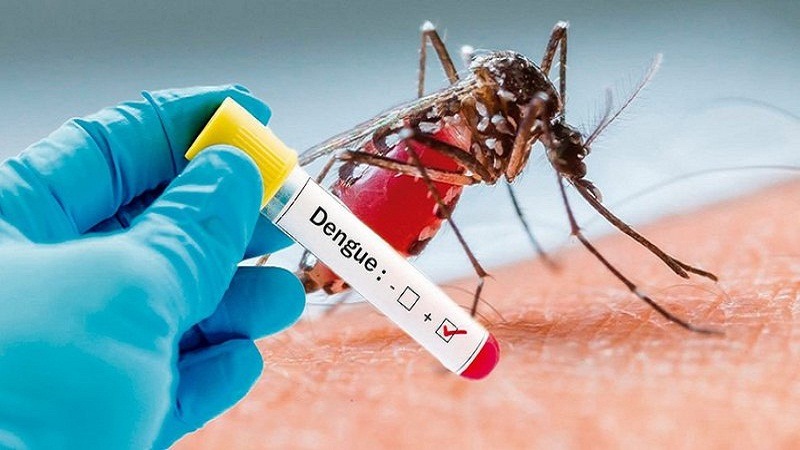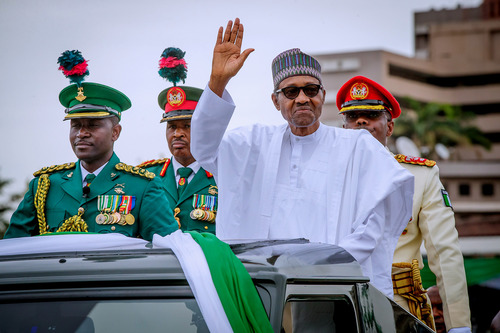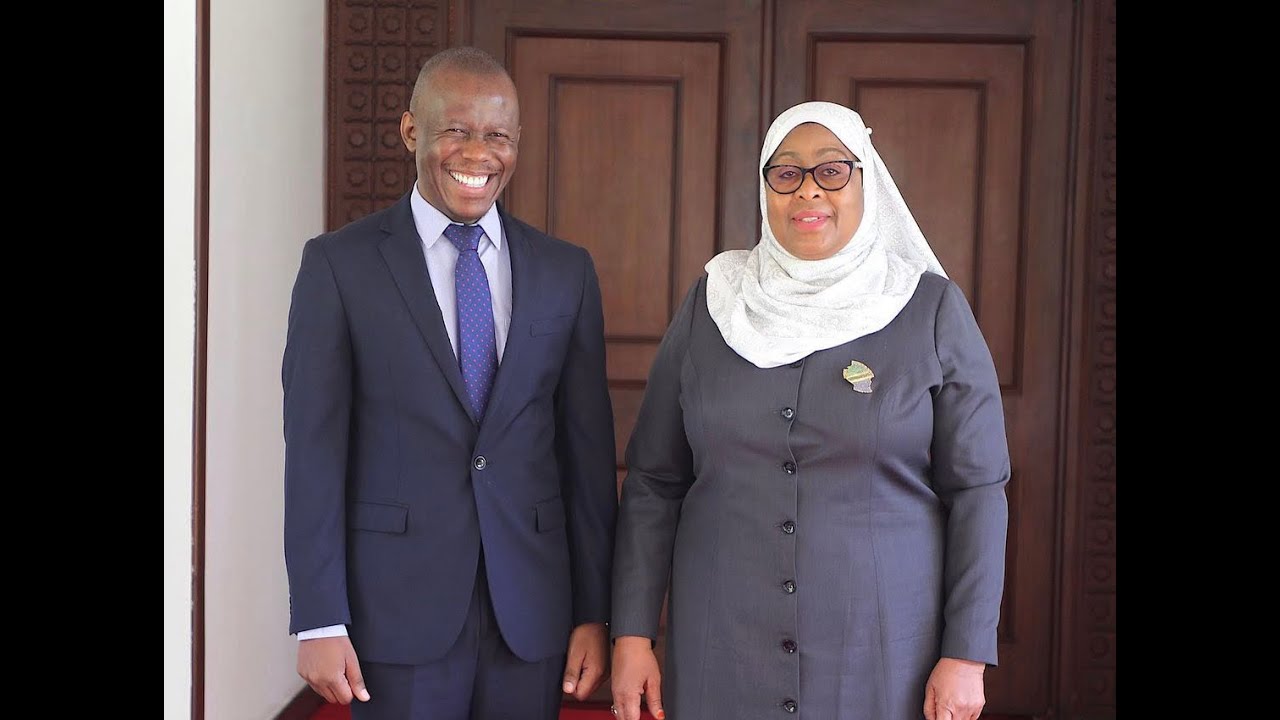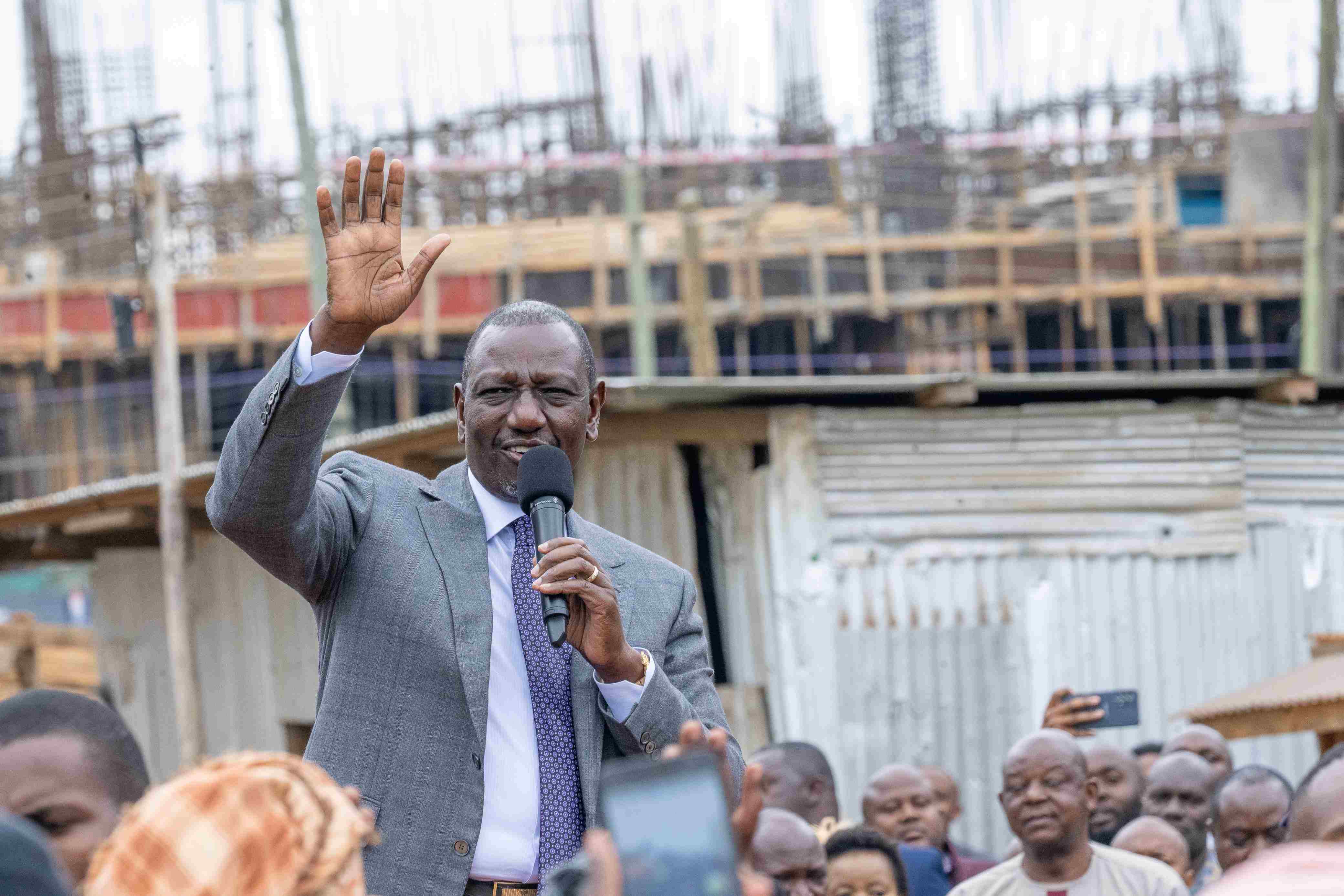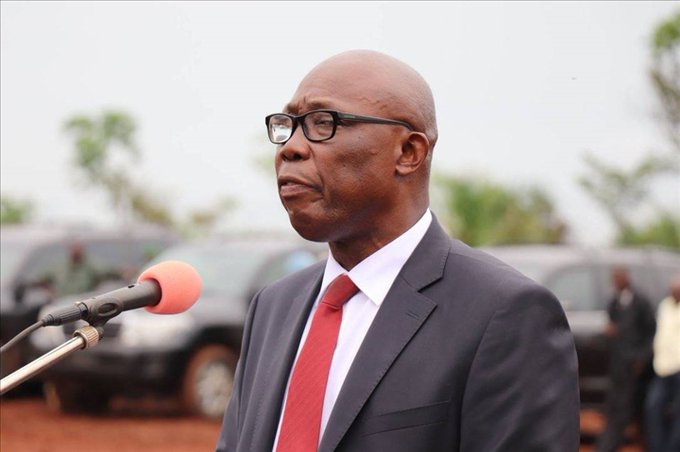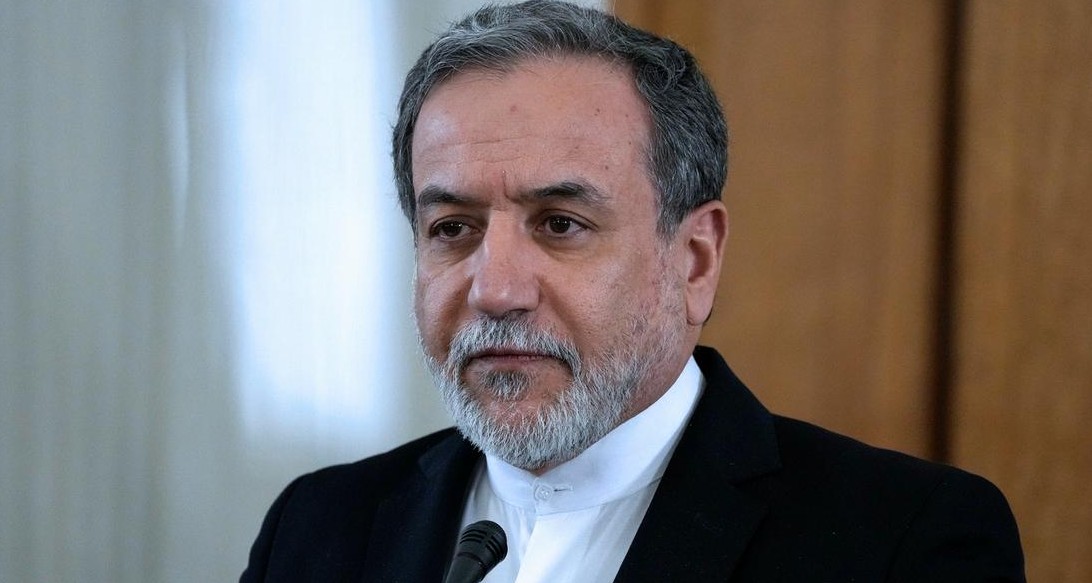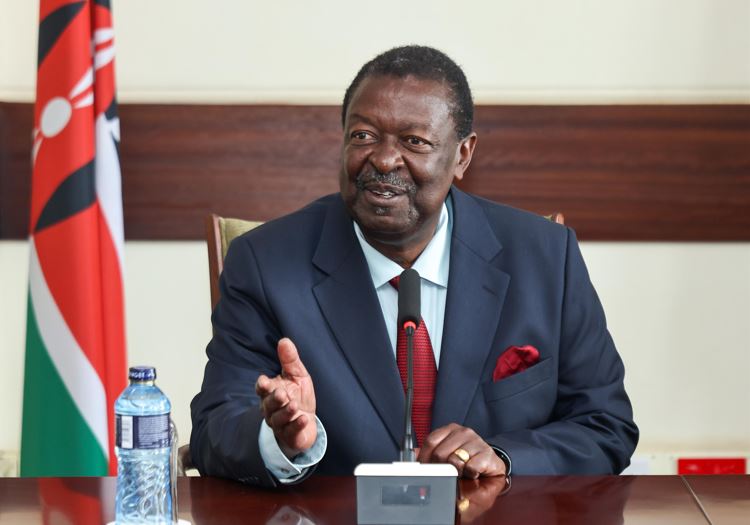Ruto orders 30pc budget cut for all parastatals, says loss-makers to shut down
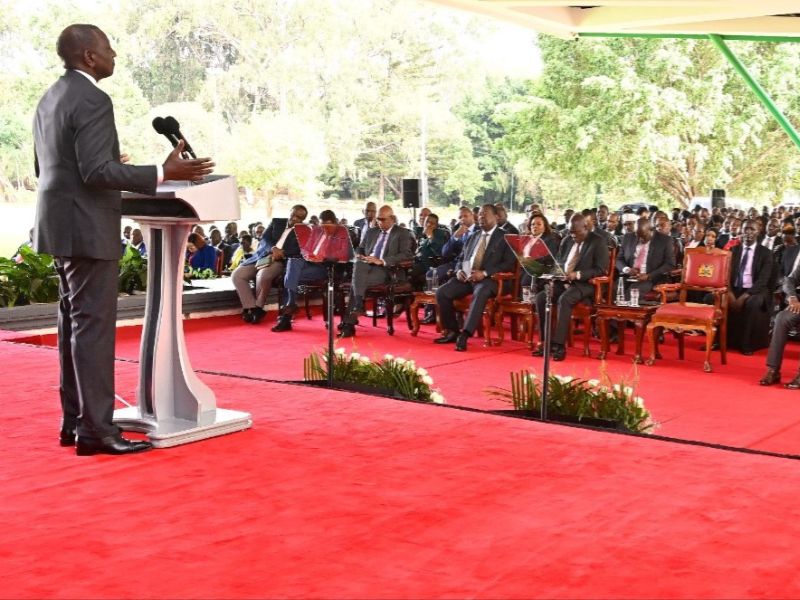
The president noted that the government and all its organs must operate within their means, ensuring expenditure never exceeds revenue.
President William Ruto has directed all parastatals to cut their approved budgets by 30 per cent as part of his government's efforts to eliminate unnecessary spending, including the financing of largesse in parent ministries and unnecessary procurement.
At a meeting with parastatal chairpersons and chief executive officers at the State House in Nairobi on Tuesday, the president noted that the government and all its organs must operate within their means, ensuring expenditure never exceeds revenue.
More To Read
- President William Ruto reinstates Charles Nyachae to Kenya School of Government post
- Washington address: Ex-DP Rigathi Gachagua vows to take Ruto to ICC over killings, abductions
- KIPPRA flags job creation as key concern despite Kenya’s economic growth
- Budget shortfall threatens Ruto’s Sh29.7 billion youth empowerment programme
- President Ruto re-gazettes IEBC Chair Ethekon, six commissioners after court cites legal breach
- NDMA: 23 arid counties face water shortage, risk of drought-induced conflicts grows
“Now that the economy has stabilised, we cannot continue accumulating debt. Borrowing will only lead us down the cliff,” he said.
“The money some parastatals make does not belong to their boards or management. It belongs to the people of Kenya as returns on investment," he added.
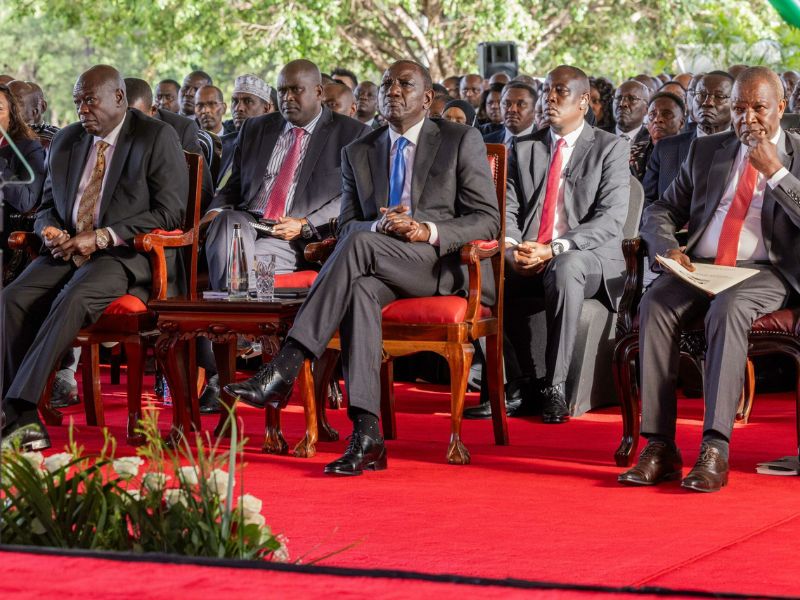 President William Ruto (C), DP Rigathi Gachagua and Treasury CS Njuguna Nd'ung'u during a meeting at the State House in Nairobi on March 26, 2024, with parastatal chairpersons and chief executive officers. (Photo: PCS)
President William Ruto (C), DP Rigathi Gachagua and Treasury CS Njuguna Nd'ung'u during a meeting at the State House in Nairobi on March 26, 2024, with parastatal chairpersons and chief executive officers. (Photo: PCS)
The president regretted that the abuse of public resources has become so rampant that it has inhibited service delivery.
As such, Ruto vowed that the budgets and expenditures of state bodies will undergo a fresh, thorough audit to check the abuse of public resources.
"Our budgets and expenditures must be subjected to rigorous auditing to eliminate abuse of public resources. We will leverage technology to maximise value for money and boost service delivery," he said.
Loss-making parastatals to shut down
Ruto also told the meeting that loss-making parastatals with no revival plans would be shut down and the staff sent to other organisations.
"I want some of those institutions to volunteer," he said, noting the importance of admitting failure to fulfil their obligations for the sake of appropriate government action to prevent losses.
"We have to be honest," he said, adding, "We must change our country."
President @williamsruto hosting CEO’s and Chairpersons of Parastatals:
— Hussein Mohamed, MBS. (@HusseinMohamedg) March 26, 2024
‘Loss-making parastatals will be shut down.’ pic.twitter.com/bHt0TOgPBF
Ruto explained that the moves would stop unnecessary borrowing and accelerate the government’s transformation agenda.
“We must get it right. We must do what is right. This is the time,” he told the meeting, adding the government would consolidate processes to end the duplication of functions, wastage and losses.
“In three years, we must run a balanced budget. It won’t be easy but we must do it,” he said.
The president also ordered commercial state corporations to remit 80 per cent of their profits after tax to the National Treasury.
“We will give you directions on what to do with the remaining 20 per cent,” he said, adding that regulatory institutions must remit 90 per cent of their surplus funds to the Treasury.
“There will be no exceptions. Everybody must comply,” Ruto said.
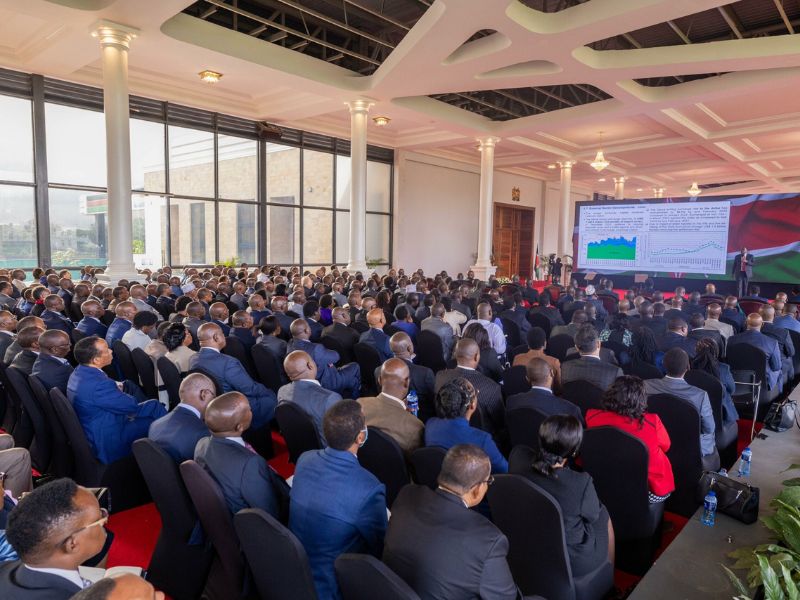 Parastatal chairpersons and chief executive officers at the State House in Nairobi on March 26, 2026, during a meeting with President William Ruto. (Photo: PCS)
Parastatal chairpersons and chief executive officers at the State House in Nairobi on March 26, 2026, during a meeting with President William Ruto. (Photo: PCS)
Privatisation plans
The State House earlier said that budget cuts and the planned privatisation of some institutions were on top of the agenda.
The government intends to sell at least 10 non-performing parastatals to improve infrastructure and service delivery for Kenyans.
Last month, Ruto's Kenya Kwanza government signed a revised privatisation bill into law, making it easier to sell state enterprises to private companies. The revised law aims to increase the private sector's participation in the economy, the presidency said at the time.
As a result, the Cabinet last month approved the sale of seven more state-owned enterprises, bringing the total number of entities set to be privatised to 17. The goal is to stimulate the expansion of the country's hospitality industry and grow individual units.
Ruto further promised to rejuvenate the Nairobi Securities Exchange (NSE) via initial public offerings by between six and 10 companies, a target that, if met, would see him surpass the record set by former President Mwai Kibaki's administration.
Top Stories Today

